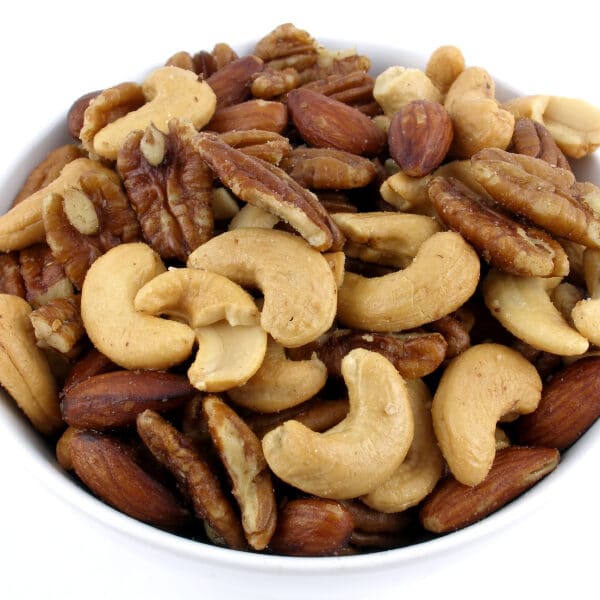
Mixed Reviews
Nuts – almonds, hazelnuts, walnuts, pistachios, cashews, macadamias, Brazil nuts and the peanut (which interestingly are botanically a legume but commonly categorised as nuts) often have mixed reviews when it comes to their nutritional benefits.
Nuts contain high amounts of protein and provide fibre, vitamins and minerals. Walnuts and Brazil nuts, for example, provide potassium, calcium, magnesium, iron, zinc and vitamin E. Brazil nuts are also a rich dietary source of selenium. Nuts also contain other important bioactive constituents such as phytoesterols and phenolic compounds. They are though also particularly rich in fat, but the healthier ‘good’ kind, rather than saturated fats. It is, in fact, this characteristic lipid profile that is likely to be an important contributor to the beneficial effect on markers of heart health that have been reported in some studies of investigating the effects of regular nut consumption. Indeed, walnuts have a health claim approved by the EU, such that 30g walnuts consumed daily have been shown through good quality studies to improve endothelium dependent vasodilation, which is a measure of improved arterial health.
Another nut study published last year reported a reduced risk of death from other causes. Eating 28g of nuts (not including peanuts) 7 or more times per week was reported to be associated with a 20% reduced risk of death. However, such research cannot prove causality. People who ate nuts in this study had a healthier dietary pattern with a higher intake of fruit and vegetables. They were leaner, less likely to smoke, more likely to exercise and more likely to use multivitamin supplements.
Nuts can be part of a healthy diet
However, such research emphasises that nuts can be part of a healthy diet. But we need to be aware of how many nuts we are eating (30g for example is around 8 Brazil nuts, 5 walnuts or 12 almonds), and how they have been prepared. As many nuts are heavily salted, coated with sugar, or roasted in other vegetable oils, raw unsalted nuts are the best option. And for those that may be at risk of choking, nuts can come in the form of nut butter.
Importantly, although nuts are low in saturated fat they are high in total fat. It is not always publically recognised that all fats – whether saturated, monounsaturated or polyunsaturated: provide the same calories, so even ‘good’ fat can contribute to a high calorie intake if eaten in excess. So should we go nuts for nuts? Yes, but in moderation!



